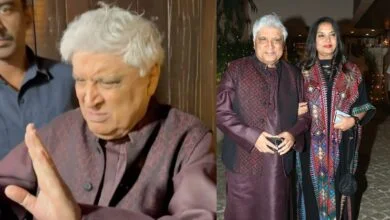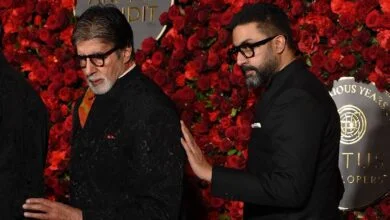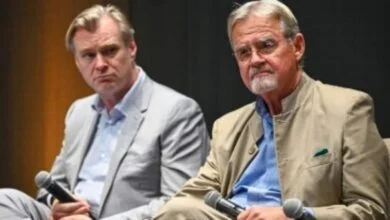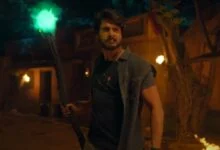Monster movie review: Hirokazu Kore-eda gives us one of the year’s best films helobaba.com

Japanese director Hirokazu Kore-eda’s best works offer tender, illuminating portraits of the many moods of childhood. He’s a master of capturing the mundane, the specific everyday-ness of human experience. His new film Monster (Kaibutsu), which first had its world premiere at the Cannes Film Festival last year, at first seems to follow the same road. Yet, as the Rashomon-esque drama unravels, Monster becomes a compelling reminder of the power of perspective, woven within the repeating events of the same days, told from three angles. (Also read: Upgraded movie review: Camilla Mendes leads this spirited yet formulaic romantic comedy)

The structure and premise
Monster begins with Minato Mugino (Soya Kurokawa), who has begun to act strangely around his single mother Saori (Sakura Ando). She is witness to his hair-cutting tendencies and tracks him down to an abandoned tunnel by the hills. A well-intentioned comment drives Mugino to jump out of the moving car. Saori suspects that he is being bullied at school, and registers a complaint to the principal Makiko Fushimi (an unforgettable Yūko Tanaka), against a certain teacher there, named Mr. Hori (Eita Nagayama).
Why has Mr Hori called him ‘pig brain’? The explanation then leads to the second act, which shifts the perspective through the point of view of Mr. Hori himself. Although he has shared that it was Minato who was a bully to another student in the class- the sensitive Yori (Hinata Hiiragi), is there more to his story? Its a thornier angle, where he is wronged in an insidious system that is governed by adults. He is forced to give a formal apology, but it does not provide any explanation to the many loose ends that still stick out.
Once the screenplay, a masterwork in recalibration of incidents and perspectives by Sakamoto Yuji (that won him the Best Screenplay at Cannes), directs its gaze towards the reality between Minato and Yori, Monster reveals what is really going on. The two kids have a soft spot for each other, although how they respond to that is contrasting. The third part is the film’s most unforgettable segment, and although Monster takes its own sweet time to arrive there, stay with it. Assemble the bits and pieces of information scattered through the three segments. It all comes together to form a jewel of a film.
Final thoughts
Breathtakingly vivid in the scenes involving a fairytale-ish, abandoned carriage that the kids share, far away from the gaze of adults, Minato and Yori build a precious bond. A particularly moving and profound scene appears when Minato and Makiko meet and share a moment by themselves in the school’s music room. “Happiness is something anyone can have,” she tells him. “If it’s not for everyone, that’s not happiness.” The emotional intelligence with which this particular insight fits into the web of Monster is a thing of beauty.
Composer Ryuichi Sakamoto’s rousing, intimate score marvelously plays out to withstand the many moods and feelings of this film. Monster invites the viewer’s worst assumptions on its characters, and gently makes space for empathy and consideration along the way. It shows how truth can exist in different forms and layers, often guided by circumstance and impulse. The world that Monster creates, expands to allow those assumptions, and then lifts the shadow over the unforeseen reality. Ever so gentle and quiet in its treatment, Hirokazu Kore-eda has delivered a soulful, humanist drama; and one of the very best films of the year.









